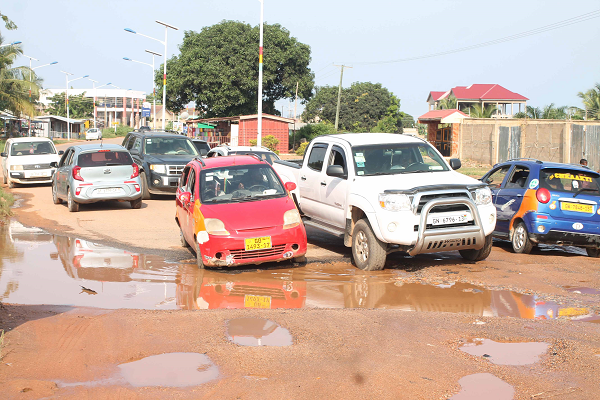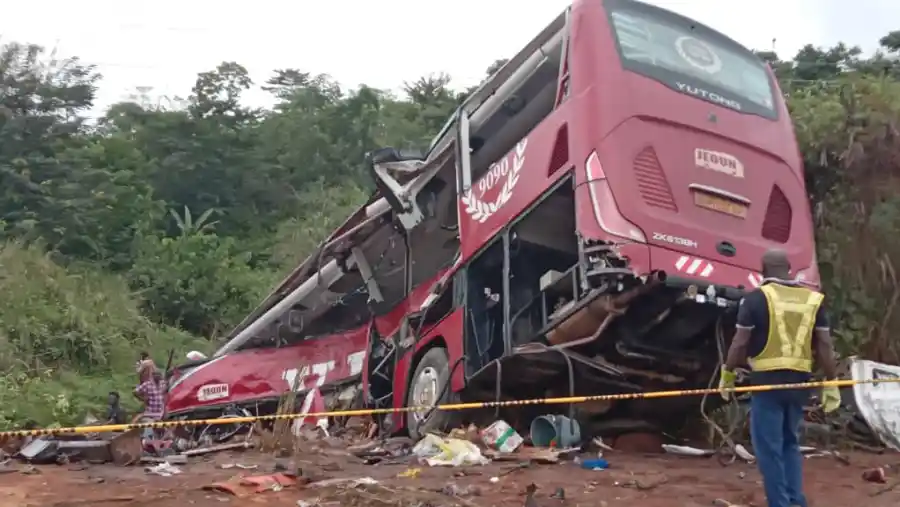Ghana is confronting a mounting crisis on its highways as road accidents escalate beyond mere transportation mishaps into a full-blown public health emergency. At the 44th Annual General Meeting of the Society of Private Medical and Dental Practitioners in Cape Coast, the Ghana Medical Association (GMA) sounded an urgent alarm, characterizing the nation’s “road carnage” as a threat to the health and productivity of its citizens.
Dr Frank Serebuor, President of the Ghana Medical Association, opened his address by highlighting the alarming frequency of fatal crashes and their disproportionate impact on Ghanaians in their most productive years. Drawing on recent incidents that claimed multiple lives within single events, he warned that the burden of injury, disability, and death from these accidents now rivals the toll of many communicable and non-communicable diseases traditionally tracked by health authorities.

“ Even our single-lane roads are in such deplorable condition that every trip on them feels like a dance with death ”
Dr Frank Serebuor
Beyond the staggering human cost, Dr Serebuor painted a stark picture of Ghana’s deteriorating road infrastructure. He drove home the extent to which potholes, poor drainage, and inadequate signage have conspired to turn everyday journeys into life-threatening endeavors. His choice of words heavily emphasized the severity of structural neglect and its direct contribution to preventable loss of life.
qually troubling, Dr Serebuor called out motorists for cavalier behavior behind the wheel. He observed that drivers ply these treacherous routes “with careless abandon,” often flouting traffic laws, speeding recklessly, and failing to show basic respect for fellow road users. This culture of impunity, he argued, compounds infrastructural weaknesses and transforms a dangerous road network into a lethal environment for drivers, passengers, and pedestrians alike.
Addressing the assembly of private medical and dental practitioners, the GMA President urged a multi-sectoral response, stressing that no single agency could reverse the trend alone. He called upon government bodies, civil society, and citizen groups to forge a coordinated strategy that combines rigorous enforcement of traffic regulations, systematic road maintenance, and pervasive public education campaigns on road safety. According to Dr Serebuor, “Collective responsibility” is the only path to stem the tide of disaster sweeping Ghana’s highways.
In assessing systemic inaction, Dr Serebuor did not spare political leaders or public institutions. He pointed to years of underinvestment in road infrastructure and inconsistent policy implementation, which have left key arteries in disrepair and safety standards in limbo. By labeling this failure a public health emergency, the GMA has sought to elevate road safety to the highest level of national priority, demanding urgent budgetary allocations and clear accountability mechanisms within government ministries and agencies.
The GMA’s declaration reorients the national discourse on road accidents, shifting the focus from isolated traffic reports to a broader understanding of injury prevention, trauma care, and long-term rehabilitation. Hospitals and clinics, already grappling with limited resources, must now brace for increasing caseloads of crash

victims requiring complex surgical interventions and extended recovery support. Dr Serebuor’s warning thus carries implications for health-system planning, workforce training, and emergency medical services across the country.
As Ghana faces this unprecedented health challenge, the GMA’s message is clear: road safety is not an ancillary transport issue but a core public health concern demanding immediate and sustained action. With leadership from medical professionals and buy-in from every level of society, Ghana has an opportunity to transform its road network, protect its citizens, and reverse a lethal trend that now rivals the deadliest diseases in its impact. The call to act is urgent, and the cost of delay is measured in lives lost on every stretch of poorly maintained tarmac across the nation.



